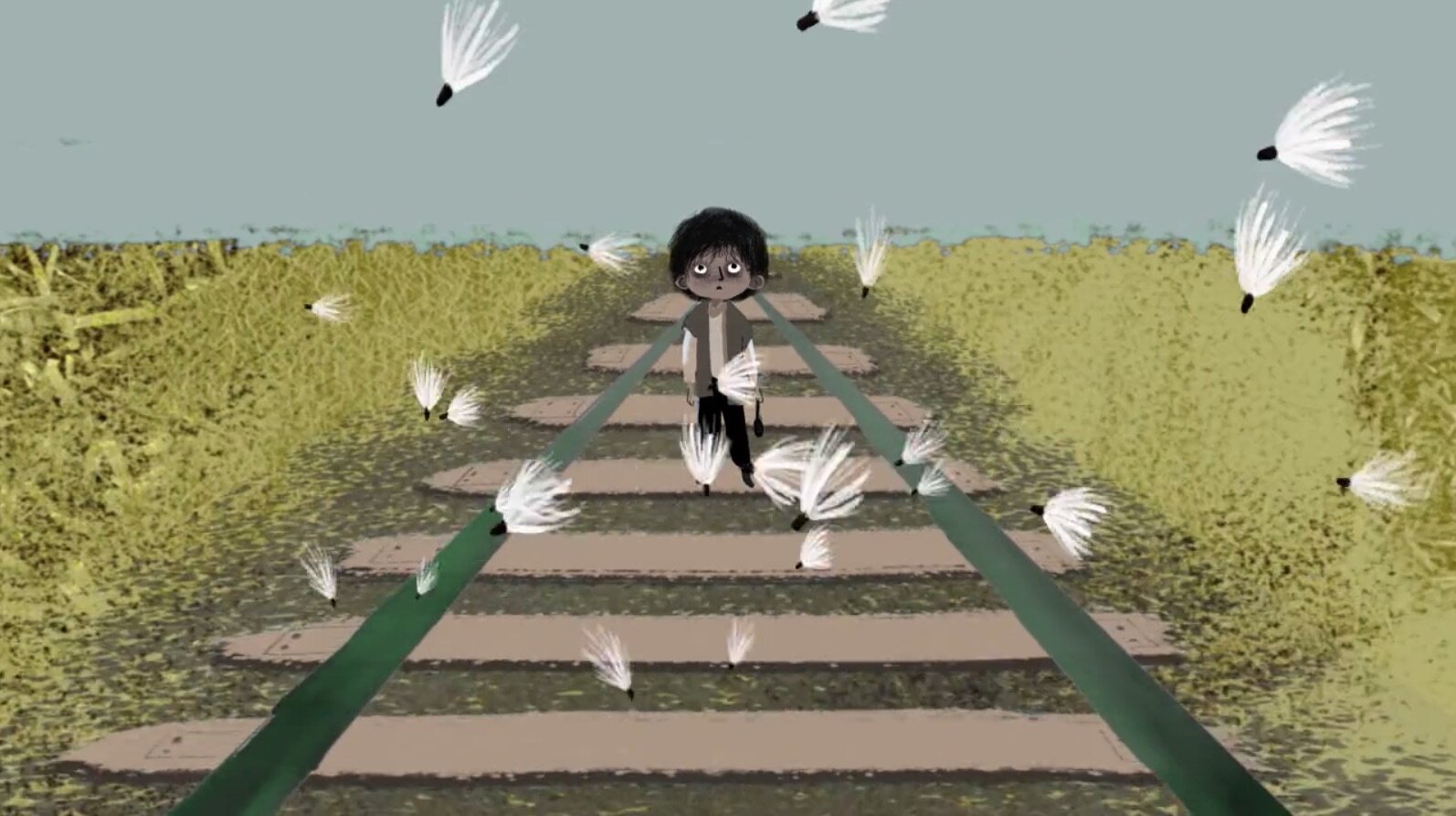A conversation with Milkweed’s author Jerry Spinelli
“Milkweed” Art Director Annita Soble recently called Jerry Spinelli to talk to him about his inspiration for his book. Out of the dozens of successful young adult novels Jerry has authored, “Milkweed” remains his only work of historical fiction. Why is this the only one? Annita thought that if she found out what compelled Jerry to write this story, perhaps the “Milkweed” team could harness that understanding in its retelling of the story as a feature film. For those who don’t know about the Holocaust, might this be the little film that reaches them?
What follows are excerpts from Annita’s conversation with Jerry.
—
Annita: Why did you choose to write about the Holocaust? When did it first enter your consciousness?
Jerry: Before everything. Before writing, before grade school, I was sitting on the floor of our row house in Norristown, Pennsylvania, and I was flipping through some history books that my father had, until I came to this picture. It was a black-and-white photo. It caught my attention, but I couldn’t figure out what I was looking at. So much so that I started turning the book every which way to try and figure it out.
Annita: What was it a photo of?
Jerry: It was the first photo I’ve seen of the piles of bodies. That was my first exposure to the Holocaust. As I learned more about it, it took me many years to try and wrap my mind around those numbers, the same way I toil to wrap my mind around the numbers of stars or galaxies… I couldn’t wrap my head around 6 million.
Annita: What were your feelings about it at the time?
Jerry: I had a certain frustration about it. That it was in the past and there was nothing I could do … except be nice to Jews I know.
Annita: Is that why you decided to write about it? As a way of taking action?
Jerry: In high school, I came up with a list of around 20 topics I wanted to write about. But, in fact, I never thought of writing about the Holocaust. I think it was because I didn’t have the credentials. I wasn’t Jewish, I wasn’t there, I didn’t know anybody that was there, and there were already maybe literally a million books that had been written on the Holocaust so what right had I?
Annita: What changed your mind?
Jerry: Later on, when I became a successful writer, I’d have talks in schools. The most typical questions that kids ask are, “How much money do you make?” “How do you come up with your ideas?” And, “Do you have any advice?” These questions get asked so frequently that for the advice part, I came up with 10 suggestions. I gave out those suggestions over and over again until I realized that giving 10 suggestions to someone who’s just starting out is like trying to swing a golf club while keeping 10 rules in your head. It’s too many. So I shortened it to: Write what you care about.
One day, Eileen came to me with something she’d read about a pharmacist in the Warsaw Ghetto who had some narcotics in his possession that could really knock someone out. The story was that he gave these narcotics to his own kid and when he was fully knocked out, the pharmacist dumped him in the wagon taking away corpses because that wagon went to the cemetery outside the ghetto. He put his kid on the wagon to get him out. The article ended there. It didn’t say what happened next. Maybe the kid woke up in the cemetery and ran off. We don’t know. But it struck me what a twisted story this was.
I started to think of that article as the start of a story. I decided to take my own advice and write what I care about.
Annita: How much research did you do from that point on?
Jerry: I don’t usually do research for my books. I might look up the price of chewing gum in 1950, but that’s about it. But for this book I felt I had to. I bought 20 books on the subject, a few of which I still have. I didn’t read them cover to cover; I just looked through them and then began writing. When I felt I had reached a critical mass of information, I started writing. I don’t like my writing to be cerebral.
Annita: Where did Misha’s character come from?
Jerry: Eileen had met someone who had been in the Warsaw Ghetto. She spoke to him some, but I didn’t. He told her some things but not as much as was in him. It never occurred to me to sit him down and squeeze it all out of him. What struck me about him was that his earliest memory was as a kid standing by a wall. He had no memory of family or anything social. It was as if he was born by that wall at age 4. There was no gradual enlistment into the human race. He wasn’t. And then suddenly he was.
Annita: The name of the book is “Milkweed,” but it doesn’t seem to take up a lot of space on the page. Why milkweed?
Jerry: As far as “Milkweed,” a lot of the details in my stories come from my own life. I lived on a dead-end street and there were woods and then a creek...I had a sibling, but for all intents and purposes, I acted like an only child. I would wander back there a lot. I put milkweed in the story because I wanted you to look out for the small uplifting, upward moving stuff even in all the horror. The little pure white wisps going up… metaphors for angels and other good things… and also the bird-like husks that release these puffs.

